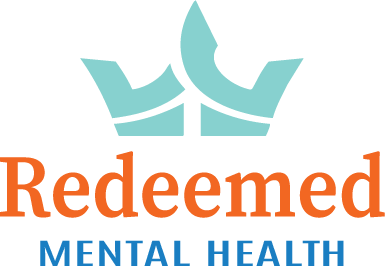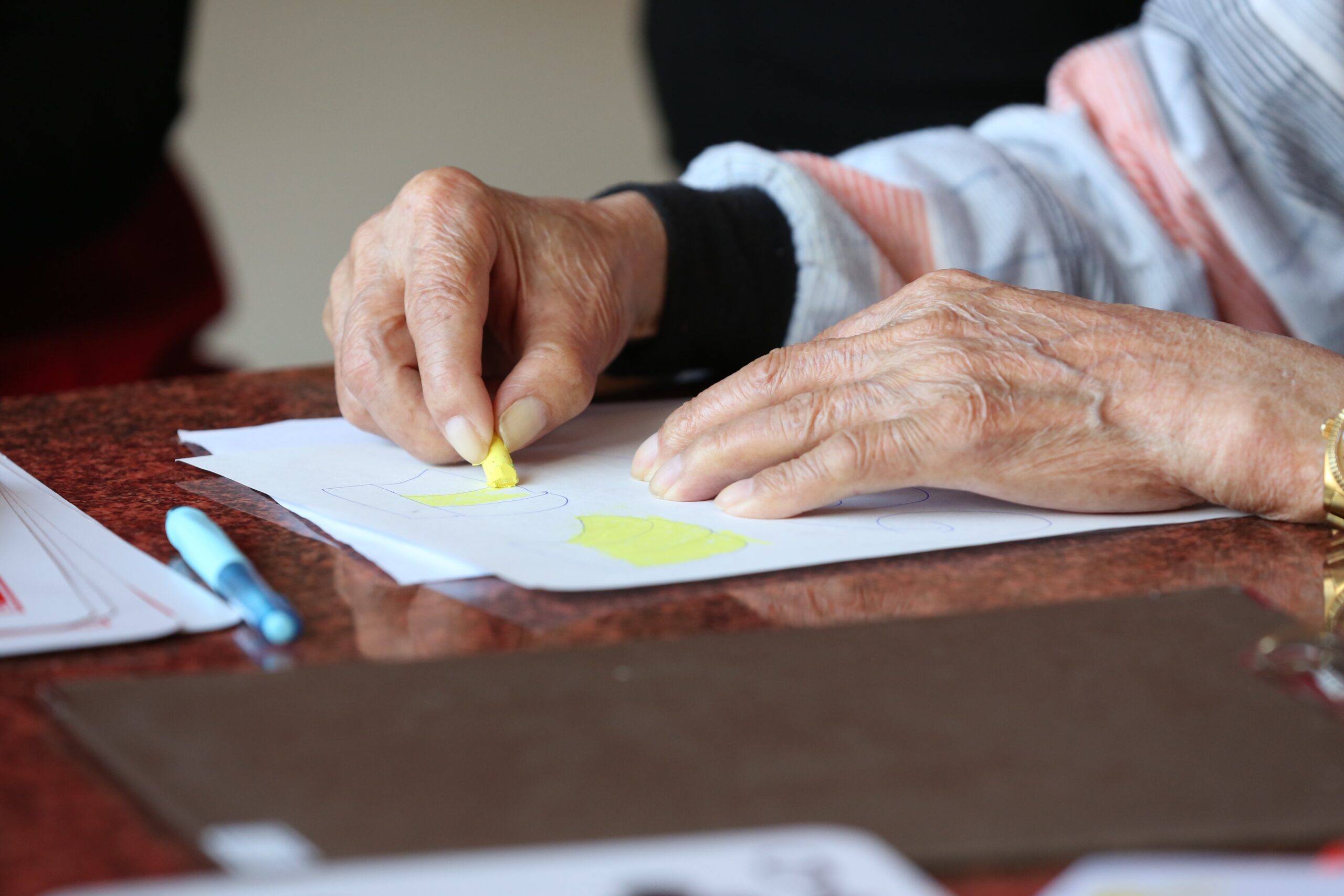Putting the Individual First: The Role of Person-Centered Care in Recovery
![]() Redeemed Mental Health
on
September 24, 2023
Redeemed Mental Health
on
September 24, 2023
 In the dynamic world of mental health, the emphasis on person-centered mental health care stands out as a revolutionary approach. This method, which prioritizes the individual’s unique experiences and aspirations, signifies a transformative departure from traditional treatment paradigms1. By focusing on the individual, person-centered care aims to offer a holistic and tailored treatment plan, ensuring that each person’s journey towards recovery is as unique as they are.
In the dynamic world of mental health, the emphasis on person-centered mental health care stands out as a revolutionary approach. This method, which prioritizes the individual’s unique experiences and aspirations, signifies a transformative departure from traditional treatment paradigms1. By focusing on the individual, person-centered care aims to offer a holistic and tailored treatment plan, ensuring that each person’s journey towards recovery is as unique as they are.
Person-Centered Mental Health Care
Person-centered care is more than just a buzzword in the mental health community; it’s a philosophy that underscores the importance of individuality in the therapeutic process. Recognizing that each person’s mental health journey is distinct, this approach seeks to tailor treatments and interventions to fit the unique contours of each individual’s life.
Definition and Core Principles
At its core, person-centered care is about recognizing and valuing the individuality of each patient.
- Rooted in the belief that every individual possesses intrinsic value and deserves respect.
- Ensures care plans are tailored to the individual’s specific needs and preferences.
- Promotes collaboration between the patient and healthcare providers.
Traditional vs. Person-Centered Care
The distinction between traditional and person-centered care lies in their approach to treatment.
- Traditional care often follows a one-size-fits-all model.
- Person-centered care is dynamic, adaptive, and individualized.
- Prioritizes the patient’s voice and active participation in their care.
Recovery Model Principles
The Recovery Model, a cornerstone of modern mental health care, emphasizes the journey of healing and growth. It’s not just about the alleviation of symptoms but about empowering individuals to lead fulfilling lives despite their challenges.
Introduction to the Recovery Model
A holistic approach that prioritizes the individual’s journey over clinical outcomes. Recognizes recovery as a personal process encompassing physical, emotional, and social aspects.
- Emphasizes personal growth and development.
- Focuses on strengths and resilience.
- Encourages active participation in the recovery journey.
Key Principles and Their Significance in Person-Centered Care
Central principles include hope, empowerment, and self-determination. Aligns seamlessly with person-centered care, emphasizing the individual’s active role in their healing journey2.
- Hope as a driving force in recovery.
- Empowerment through knowledge and self-advocacy.
- Self-determination as a right, not a privilege.
The Role of Technology in Person-Centered Care
As we navigate the 21st century, technology plays an increasingly pivotal role in reshaping the landscape of mental health care. From teletherapy to AI-driven diagnostic tools, technology is revolutionizing person-centered care, making it more accessible and effective3.
Teletherapy and Remote Counseling
With the rise of the digital age, teletherapy has emerged as a viable alternative to traditional face-to-face counseling, breaking down geographical barriers and making mental health care accessible to all.
- Provides flexibility and convenience for both therapists and clients.
- Ensures continuity of care, especially in challenging times.
- Offers a secure and confidential platform for therapy sessions.
AI-Driven Diagnostic Tools
Artificial Intelligence (AI) is at the forefront of modern medical advancements. In the realm of mental health, AI-driven tools are aiding in accurate diagnostics, ensuring timely and effective interventions.
- Facilitates early detection of mental health disorders.
- Provides data-driven insights for personalized treatment plans.
- Enhances the overall quality of care through predictive analytics.
Real-Life Success Stories
While data and research underscore the effectiveness of person-centered care, real-life success stories offer tangible evidence of its transformative power. From individuals reclaiming their lives to therapists witnessing profound changes, these stories illuminate the profound impact of person-centered care.
Testimonials of Individuals Benefiting from Person-Centered Care
Firsthand accounts from individuals like Jo Anne H. and Sarah M. provide a glimpse into the transformative power of person-centered care. Their journeys, marked by challenges and triumphs, serve as a testament to the efficacy of this approach.
- Jo Anne H.’s journey from despair to hope.
- Sarah M.’s transformative experience with person-centered therapy.
- Countless others who found solace and healing through individual therapy.
Challenges and Critiques of Person-Centered Care
While person-centered care has garnered widespread acclaim for its holistic approach, it’s not without its challenges and critiques. Understanding these concerns is crucial for refining and optimizing this care model for the future.
Resource Intensiveness
One of the primary critiques of person-centered care is its resource-intensive nature. Crafting individualized care plans requires time, effort, and a deep understanding of each patient’s unique needs.
- Requires extensive training for healthcare providers.
- Demands more time per patient, which can strain healthcare systems.
- May not be feasible in settings with limited resources.
Scalability Concerns
Given its individualized nature, there are concerns about the scalability of person-centered care, especially in larger healthcare systems with a high patient influx.
- Challenges in maintaining consistent quality across large patient populations.
- Potential for dilution of care quality in high-demand settings.
- Need for robust systems to manage and monitor individualized care plans.
The Future of Person-Centered Care
As we look to the future, the trajectory of person-centered care appears promising. With continuous research, technological advancements, and a growing emphasis on holistic health, this approach is poised to redefine mental health care.
Integration of Technology
The fusion of technology and person-centered care is set to usher in a new era of mental health treatment. From AI-driven diagnostics to virtual reality therapy sessions, the future holds immense potential.
- Use of AI to craft personalized therapy modules.
- Virtual reality sessions for immersive therapeutic experiences.
- Wearable tech for real-time mood and health tracking.
Global Adoption and Advocacy
With its undeniable benefits, person-centered care is gaining traction globally. Advocacy efforts, both at grassroots and policy levels, are pushing for its widespread adoption, ensuring that individuals worldwide have access to holistic mental health care.
- Initiatives to train healthcare providers in person-centered methodologies.
- Policy changes to prioritize individualized care in public health systems.
- Global collaborations to share best practices and research findings.
The Role of Families and Communities in Person-Centered Care
 Person-centered care isn’t an isolated approach; it thrives on the support of families and communities. Their involvement can significantly enhance the effectiveness of therapeutic interventions, fostering a supportive environment for individuals on their recovery journey.
Person-centered care isn’t an isolated approach; it thrives on the support of families and communities. Their involvement can significantly enhance the effectiveness of therapeutic interventions, fostering a supportive environment for individuals on their recovery journey.
Family Involvement in Therapy
Families play a pivotal role in the mental health journey of an individual. Their involvement can provide crucial insights, emotional support, and a sense of belonging, all of which can accelerate the healing process.
- Family therapy sessions to address interpersonal dynamics.
- Training sessions for families to understand and support their loved ones.
- Creating a nurturing home environment conducive to recovery.
Community Support Systems
Communities act as extended support systems, offering resources, social connections, and a sense of belonging. Their role in person-centered care is often understated but profoundly impactful.
- Community-based therapy and support groups.
- Local resources and helplines for immediate assistance.
- Public awareness campaigns to destigmatize mental health issues.
Patient-Directed Approach in Person-Centered Care
The patient-directed approach is the essence of person-centered care. It emphasizes the active involvement of the patient in their treatment, ensuring that their voice is heard and their preferences are respected.
Empowering Patients in Decision Making
Empowerment is more than just a concept; it’s a practice that ensures patients have a say in their treatment. This approach fosters trust, collaboration, and better therapeutic outcomes.
- Encouraging patients to express their feelings and concerns.
- Collaborative goal setting for therapy.
- Respecting patients’ choices and autonomy.
Benefits of a Collaborative Approach
When patients and therapists work together, the results are often transformative. This collaboration ensures that therapy is tailored, effective, and resonates with the patient’s unique experiences.
- Enhanced trust and rapport between patient and therapist.
- Higher therapy adherence and engagement rates.
- Better long-term mental health outcomes.
Crafting a Meaningful Life with Person-Centered Mental Health Care
Person-centered care goes beyond symptom management; it’s about crafting a meaningful life. By focusing on the individual’s aspirations, strengths, and values, this approach ensures that therapy aligns with their vision of a fulfilling life.
Setting Life Goals in Therapy
Goal setting is a pivotal aspect of person-centered care. It ensures that therapy is not just about addressing challenges but also about building a future that resonates with the patient’s aspirations.
- Identifying short-term and long-term life goals.
- Creating actionable steps to achieve these goals.
- Regularly reviewing and adjusting goals based on progress.
Emphasizing Strengths and Resilience
Every individual possesses innate strengths and resilience. Person-centered care emphasizes harnessing these qualities, ensuring that therapy is empowering and builds on the individual’s inherent capabilities.
- Identifying and building on the patient’s strengths.
- Developing resilience-building strategies.
- Empowering patients to face challenges with confidence.
The Global Impact of Person-Centered Care
Person-centered mental health care is not just a localized phenomenon; its impact is global. From grassroots initiatives in remote villages to policy changes in global health organizations, this approach is redefining mental health care worldwide.
Adoption Across Cultures
Every culture has its unique approach to mental health. Yet, the essence of person-centered care, which emphasizes individuality and respect, resonates universally.
- Training and workshops to introduce person-centered care in diverse settings.
- Adapting the approach to respect cultural nuances and beliefs.
- Collaborative research to study the efficacy of this approach across cultures.
Policy Changes and Global Advocacy
Global health organizations and policymakers are recognizing the transformative power of person-centered care. Advocacy efforts are pushing for its integration into public health systems, ensuring that individuals worldwide have access to holistic mental health care.
- Policy changes to prioritize person-centered care in public health systems.
- Global collaborations to share best practices and research findings.
- Initiatives to train healthcare providers in person-centered methodologies.
Conclusion
As we reflect on the journey of person-centered care, its transformative power is evident. By placing the individual at the heart of therapy, it offers a beacon of hope, empowerment, and healing. As mental health professionals, advocates, and community members, our collective efforts can ensure that this approach becomes the gold standard in mental health care, offering solace and healing to countless individuals worldwide.
Frequently Asked Questions
- What is person-centered mental health care?
- How does person-centered care differ from traditional mental health care?
- Why is person-centered care important in mental health recovery?
- Can person-centered care be integrated with other therapeutic approaches?
- How can I find a therapist who practices person-centered mental health care?


 While individuals take the lead in their recovery, professionals play a pivotal role in guiding and refining goal-setting. With their expertise, they can help individuals set realistic, achievable goals, ensuring a balanced and holistic approach to recovery.
While individuals take the lead in their recovery, professionals play a pivotal role in guiding and refining goal-setting. With their expertise, they can help individuals set realistic, achievable goals, ensuring a balanced and holistic approach to recovery.
 Improved Relationships: With better mental well-being, individuals often find their relationships – be it familial, romantic, or platonic – improving.
Improved Relationships: With better mental well-being, individuals often find their relationships – be it familial, romantic, or platonic – improving.




















